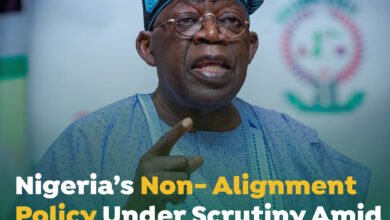
Nigeria, Africa’s acclaimed giant, has long been shrouded in darkness.
For many years, the country has battled chronic power shortages, crippling its economic potential and frustrating its citizens.
But what exactly is causing this blackout? Is it a lack of generation, faulty distribution, or ineffective regulation?
Government indifference, inconsistent policies, and a lack of political will are some identified factors militating against improved electricity in Nigeria.
This, coupled with corruption, leadership shortcomings, and crumbling infrastructure, has created a systemic rot in the power sector.
Dark holes
Despite the huge investments that have been sunk into the power sector, Nigeria unlike its economic peers, Egypt and South Africa, has continually struggled to provide a steady power supply to its booming population.
To tackle the systemic rot head-on, successive governments have highlighted various bold reforms intended to get the sector back on track, all to little avail.
In effect, successive governments’ numerous interventions and initiatives in this regard have been geared toward unleashing and unlocking the nation’s economic potential – as without a constant and regular power supply, a nation is limited by what it can achieve.
Experts suggest Nigeria boasts the potential to generate a staggering 22,000 megawatts of electricity from various sources like gas, water, solar, coal and even nuclear.
Yet, it currently produces a mere 8,000 megawatts, and even that struggles to reach consumers due to inadequate and ineffective transmission infrastructure. Nigeria’s electricity value chain has its own set of hurdles. While private firms handle distribution, gas suppliers, generating companies (Gencos), and distribution companies (Discos) operate in a complex web.
A recent hike in electricity tariffs, aimed at reform, has done more harm than good; sparking public outrage.
However, there have been several clarifications that the directive only affected those in the Band A category that enjoyed 20-24 hours of regular power supply per day.
Customers in other categories have been assured the government’s continued subsidy to cover their financial shortfall.
Despite these assurances, the Minister of Power, Bayo Adelabu has openly admitted government is finding it difficult to sustain the electricity subsidy bills.
The Minister had on 15th February 2024 explained that the indebtedness of the country’s power sector to electricity generating companies (gencos) and the gas companies (gascos) has risen to over N3 trillion.
“Today” the Minister declared “we are owing a total of N1.3 trillion to the power generating companies, out of which 60 per cent is owed to gas suppliers. Today, we have a legacy debt, before 2014, to the gas companies of N1.3 billion; at today’s rate, that is close to N2 trillion”.
Comprehensive approach
Beyond tariffs, there is the consensus Nigeria’s power crisis is multifaceted and demands a comprehensive solution that addresses all three areas: generation, distribution, and regulation.
Continued investment in infrastructure development, diversification of energy sources, and improved management of existing plants are crucial to improving the generation drive.
In the same light, upgrading the transmission network, tackling energy theft, and improving the financial health of Discos are essential steps to aid an improved distribution of the generated power.
The Nigerian Electricity Regulatory Commission also have its part to play as there is the need to strike a balance between affordability and financial viability, while also strengthening regulatory oversight to ensure transparency and combat corruption.
Thankfully President Tinubu is not oblivious to the problem he has in front of him. He has affirmed electricity, specifically, is to be treated as the topmost national economic imperative, if Nigeria must develop and maximise her human and natural resources,
“To accelerate our economic growth, we must work hard to remove every obstacle that has slowed down our progress.
I have often said that electricity is the greatest human invention of the last 1,000 years.
“We cannot advance and join the rest of the developed world if we remain stuck with our current electricity supply situation and unable to supply the energy our country requires to power a doubling of the size of our Gross Domestic Product within the next decade.” the President said a few months into his tenure.
As we approach the first year of the Tinubu administration, hopefully, there will be renewed hope for improve power supply across Nigeria.
By Bosun Adedapo
Do you have an opinion article you would like to publish? Send to opinions@greenpress.ng.





